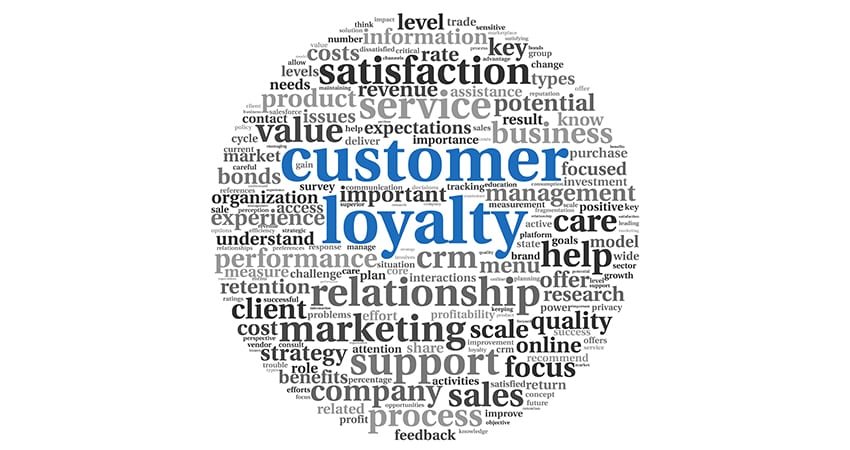As we head toward the 2021 holiday season, it’s important for brands to remember that in-store shopping is still important, even as ecommerce grows exponentially, as it provides the social aspect and discovery capabilities customers enjoy.
Consumers today are channel agnostic, shopping when and how they desire. They demand a baseline digital experience that will achieve their desired outcomes. Meeting their expectations is no longer sufficient; exceeding them is what wins their loyalty in the post-pandemic era. In order to succeed this holiday season and beyond, brands must prepare now.
Loyalty Is Lasting
Customer loyalty will be the top-ranked indicator for shoppers when deciding which brands to buy from during the 2021 holiday season, conceivably superseding both price and convenience.
Brands must not lose the spirit of innovation that emerged during the pandemic, as digital technologies have been a vital lifeline for so many when we couldn’t be together in person. The transformation and agility that was essential to meeting the challenges of the pandemic head on must continue to be harnessed as we face the “next normal.”
The empathetic tone many brands chose to adopt in their messaging and marketing evoked a feeling of togetherness that transcended a more transactional approach, and that must not disappear. The pandemic also required brands to achieve quick wins in the short term—but now, brands must focus on building relationships, creating exceptional experiences, and meeting rising expectations to win and keep customers, long term.
Understand How Consumers Have Changed
Despite the uneven economic recovery, overall global consumer sentiment is hopeful. A major indicator of the renewed positive outlook of shoppers includes a long-awaited return to partaking in social engagements outside of the home.
Consumers across the globe are expected to spend more on gifts in 2021, compared to 2020. This is directly related to missed holidays in 2020 and an improved financial situation for many in 2021. These factors will most likely be recurring themes, as they point to a level of pent-up consumer demand, as extended lockdown periods with limited social gatherings and travel have made most shoppers eager to spend again.
As we head into the holiday spending season, we’re on the cusp of a period where consumers may “revenge spend” to compensate for a time when essential items were their priority as discretionary purchases were delayed or canceled. Brands can capitalize on this momentum by planning and being better prepared for peak holiday spending.
Prepare for Holiday Shopping with 2020 in Mind
Ensure that favored pandemic shopping practices are still in place. For example, we expect customers to continue using curbside pickup once the pandemic subsides, exceeding pre-pandemic usage. When it comes to digital, consider the impact of mandatory shipping fees or expensive shipping costs and the uncertainty about personal and payment security to a consumer’s probability to purchase.
Brands must provide quicker, more convenient delivery options that will fit into the consumer’s expectations and schedule to maintain loyalty. Use this momentum in consumer adoption of forward-thinking delivery methods to gain a competitive advantage in fulfillment.
The likelihood of pandemic shopping behaviors sticking, largely depends on how well a brand executes on these initiatives. For example, a negative grocery delivery experience will likely drive a consumer back to shopping in-store, perhaps with a competitor, with little desire to try delivery again anytime soon.
The key takeaway is that brands play a large role in the probability of these new consumer behaviors becoming permanent. The pandemic necessitated the pivot to many of these behaviors, while in other instances it accelerated their eventual adoption, but after more than a year of execution, brands must now hone these capabilities to deliver the experiences that shoppers have come to expect ahead of the competitive holiday season.
Be Channel-Conscious
The number of touchpoints a consumer engages with before making a purchase continues to increase—a 2020 State of the Connected Customer report from Salesforce indicates that nearly 75% of shoppers have used multiple channels over the course of one transaction. The lines of demarcation between channels have blurred—where one channel ends, the next one begins.
Services such as buy online, pick up in store (BOPIS), and mobile wallets have eroded those lines between channels. From the customers’ point of view, the journey is channel-agnostic—the brand experience is essentially an aggregated set of experiences. However, brands must recognize a shopper’s propensity toward one channel over another and the rationale behind that tendency, in order to provide a unified, seamless experience.
Regardless of channel choice, brands must be ready to provide an experience that will surprise and delight customers this holiday season in order to drive loyalty.
Each holiday season, the stakes heighten for brands. The 2020 holiday season was the biggest on record for online shopping, with Salesforce reporting ecommerce sales catapulting to $1.1 trillion worldwide. This was due to the pandemic-induced pivot to digital, and a potential stabilization may occur resulting from an increase in offline sales with the reopening of brick-and-mortar stores. Still, consumers are unlikely to ever fully revert back to the customer journey of the past.
Renata Akers is an Analyst with Astound Commerce

